How often you think about money?
When you think about it, what are the first things that come to mind?
- Where you want to be financially in the future?
- How much you earn?
- Your bills?
- Debts?
- Vacation?
- Do you think about how much you want to save or invest?
Most of us think about money every day!

It's not that we're greedy and obsessing about it...
It's just that our finances touch every area of our lives. Each of us is making vitally important decisions every day that make us either stronger financially or more vulnerable.
The fact is, we are each building a financial house, whether we realize it or not.
How you build your house, the choices you make will determine where you end up financially.

We're all striving for Financial Independence
The goal of making wise choices is to reach a point where your money works for you - So you no longer have to work for your money!
This is called Financial Independence and this is what we all want.

The group of friends and colleagues who created this video each have over 25 years of experience helping people to grow in financial literacy and find that independence.
It's not just a crazy fantasy that other people get to live. It's possible for you.

Your dollar is just as valuable as the next person's
You can choose if that dollar disappears or if it goes to work for you.
And if you make good choices for your financial house, someday, you won't be looking to see how many vacation days your employer is willing to give you.

If you don't have a plan and are not intentional about creating one. Building your financial house is going to be like trying to build a real house without a blueprint. Not good. Probably even dangerous.
And I can promise you it will not lead to financial independence.
Most people spend more time planning a birthday party or a wedding than they do their entire financial future.

Create a stronger financial future just like you're constructing your dream home.
It starts with dreaming. Finding a clear vision for what you really want it to look like.
When you imagine the future of your financial house. What do you see?

This is the most important number in our financial lives, yet few of us never heard about it.
It's the amount of money you need to have working for you, so eventually you never have to work for money again.
This is known as your Financial Independence Number (FIN) and it gives you a clear goal or target.

If you don't know what number you're aiming for, you'll never hit it.
And when you learn your FIN, don't be intimidated by it.
It's not as out of reach as you might think. Once you know what you're aiming for, construction can begin.
Step #1
The Foundation
Step one of construction is the most important part of a house - A rock solid foundation.
A strong foundation will make sure your house doesn't crumble when hit by strong winds and storms.

In terms of your financial house, we're talking about protecting your most important asset, your income.
It's your income that builds your entire financial future and you protect it with life insurance.
- 1Auto Insurance replaces cars.
- 2Homeowner insurance replaces houses.
- 3Life insurance cannot replace a life, but it can replace an income.
Imagine a couple who has two children

Now, in addition to grieving the death of someone they love, they're going to have to change their lifestyle in dramatic ways just to make things work financially.
When the income stops because it's not protected and the bills keep coming, it leads to financial ruin.
If you were to die prematurely, would you want your family standard of living to be:
Worse?
Better?
The Same?
Life Insurance Mistakes
It's Easy To Make Mistakes When You're Not Informed
Which is why many of us have cracks in our foundation that we're not even aware of, which puts our families at great risk.
- 1Not having any or not enough life insurance coverage.
- 2Having the wrong kind: These are the kinds that claim to build a cash value that can help you save for college or retirement. Many of these policies are very expensive, leaving families under-insured and they often have savings programs that earn low returns.
- 3Relying solely on group life insurance from your job: Many of these plans only cover you if you're actively at work and they can be amended or terminated without your consent. Unfortunately, most people learn about this when it's too late.
This foundation is the most important part of your house. Once you get it right, you can then go to step to The Frame.
Step #2
The Frame
In your financial house, your frame is your spending plan. Most people call it a budget. It empowers us to start telling our money where to go instead of wondering where it went.
It protects us from wasting money and making impulse purchases like gourmet coffee and stuff like that.

It's not about how much money you make, but how much you keep. Without a plan, we spend more. Borrow more. Save less. Often leaving us with "more month at the end of our money".
It can be very stressful. Most people say they easily waste $5 to $10 a day. For a married couple, that could be $300 to $600 a month.
Imagine using that wasted money to eliminate debt and invest in your future?
For example, if you freed up $300 a month and invested it. At a 9% rate of return:
- In 20 years, you would have over $185,000.
- In 30 years, almost $500,000.

This can be the difference between reaching your Financial Independence Number or having to work for the rest of your life.
Step #3
The Roof
In a financial house, your roof is made up of some key legal documents, your will, power of attorney and advanced medical directives to name a few.
These documents are critical in order to protect your assets and, most importantly, your family.

You want to get a will right away, because if you don't have a will, your government has one for you. You just have no say in it.

For example, if both parents pass away and there's no will in place, the government will decide who raises your kids, which is the last thing we would ever want to happen.

Another reason to get a will is to avoid a family feud. If you don't have a will when you die, you take the risk of family conflict. Creating arguments of who gets what when you're gone.
That kind of turmoil can be devastating to families. It happens often, and it's a problem that is easily avoidable.

Once you've done this, you can feel good about your progress. You now have the foundation, the frame and the roof to protect and improve your family's financial well-being.
Step #4
The 1st Floor
Now you can get to work on the inside of your financial house.
Let's start on the first floor, which is your emergency fund. There's no escaping financial emergencies. Surprises are going to happen.
A broken down car. A home repair. A trip to the emergency room. Or being laid off from work.
And most people admit that when their next emergency hits, they will need to go into credit card debt or even worse, use their retirement savings for their emergency, which can be like a wrecking ball to their financial future.

Just like an umbrella protects you from getting wet, an emergency fund protects you from that wrecking ball. It protects you from going backwards.
Your goal is to have enough money saved to cover a minimum of three months and ideally six months of your living expenses. If that seems hard to do, you can begin by saving up at least $2,000.
Step #5
The 2nd Floor
Now let's tackle the second floor of your financial house. Here, your mission is to eliminate debt.
There are different kinds of debt car loans, student loans, credit cards and mortgages.
At this point in your financial journey, the most critical debt to deal with is from credit cards.

Credit card debt is the financial cancer of today. It robs us of our ability to invest, create wealth and ultimately prevents us from reaching our financial independence number.
Did you know if you make a one time $3,000 credit card purchase with an 18% interest rate with no new purchases and only made the minimum payments, it would take at least ten years to pay off and you would end up paying more than $2,000 in interest charges.

That costs you 66% more than the item you purchased. That's why this step is so important!
The quicker you get out from under credit card debt, the quicker you'll be able to pay off other debt and begin investing much more towards your future.
Debt Stacking is a simple, effective strategy that pays off debt fast. It's when you pay off one debt and then use those dollars to pay off the next debt and to continue that pattern until you are totally debt free.

And then instead of wasting your extra money, you invest it. You can transform your debt payments into wealth.
Debt is the enemy. Defeating it feels great.
And it's another vital step in your journey towards financial independence.
Step #6
The 3rd Floor
The third floor is the last floor of your financial house, and it's all about investing. Unfortunately, this is where most people fail terribly.
Why? No one taught us about it.
In school we had math, English, science and history. But how many of us had a class called “Money”?

Have you ever been taught about the Rule of 72, compound interest, the time value of money, dollar cost averaging, mutual funds? Those are some of the tools that people use to grow their money.

When you invest your money properly, it can grow exponentially. Investing the right amount of money over time in the right places enables you to reach your Financial Independence Number.
The Rule of 72 is the Most Important Rule in Money
It's a very easy mathematical formula that tells you approximately how long it takes for an investment to double in value based on its rate of return.
Here's the formula: You take the number 72 and divide it by a given interest rate.

So if your investment is going to grow with a 2% rate of return, you can divide 72 by two, which equals 36.
And that tells you your money will approximately double every 36 years.

If you see a 6% rate of return, your money will approximately double every 12 years.

And if your rate of return is 12%, then it's every six years.

That is exponential growth that can happen over time. Which leads us to what is the most life changing financial concept. It's something we can all understand and take advantage of...The power of compound interest.
Albert Einstein called it the eighth wonder of the world. Here's a real life example.

Let's say you freed up $500 per month using your spending plan and debt stacking.
If you invest this way for 35 years at a 2% rate of return, your money will grow to $304,280.
At a 6% rate of return. It will grow to almost $716,000.
But if you average a 9% rate of return, your money will grow to nearly $1.5 million.

That's the power of compound interest. Your money can earn you more money just by being in the right place.
time value of money
The key to harnessing the power of compound interest is getting time on your side. It's called the time value of money.
The more time money has to grow, the better.
When someone starts investing in their early twenties, they could see a far greater result than if they waited till they were in their thirties and forties.

Ben Franklin once said, “You may delay, but time will not!”
No matter what age you are, if you haven't started, start now!
One day when you have enough money working for you that you no longer have to work for money.
You will be glad you started today. When people build a new house, they experience a very special feeling that first night they get to sleep there. It's a great sense of accomplishment.
When it comes to your financial house, you won't need to wait till it's completed to feel that way.
As soon as you get on the right path, you'll be able to feel the satisfaction of knowing you have a bright future ahead.
You'll be able to trade stress and anxiety for peace and security.
Give Back to Others
You'll be providing a rock solid and beautiful financial house for the people who are most important to you.
By getting your financial house in order, you can help your children build theirs. Your smart choices today can positively impact your family's financial trajectory for generations to come, and that impact can go beyond your own family.
Something we haven't talked about yet, but is very important is generosity.
Being able to give generously to those in need.

Your place of worship, your community, or a non-profit that's important to you, is a powerful and rewarding way to make a difference. When your financial house is strong, the impact - your impact can be that much greater.
What action can you take now to ensure the things you learned in this video get applied in your own life?
Get a Financial Blueprint
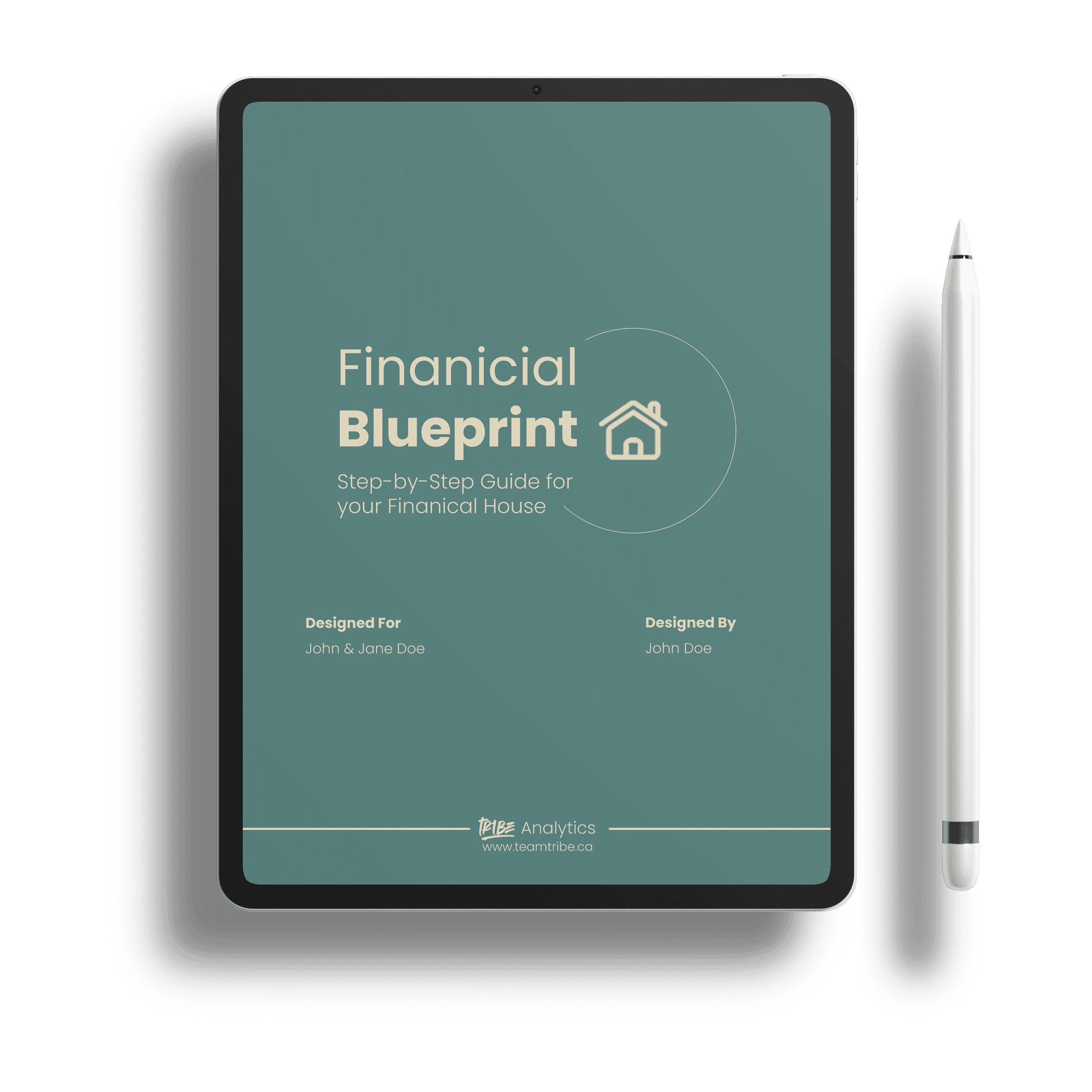
What's Inside the Financial Blueprint?
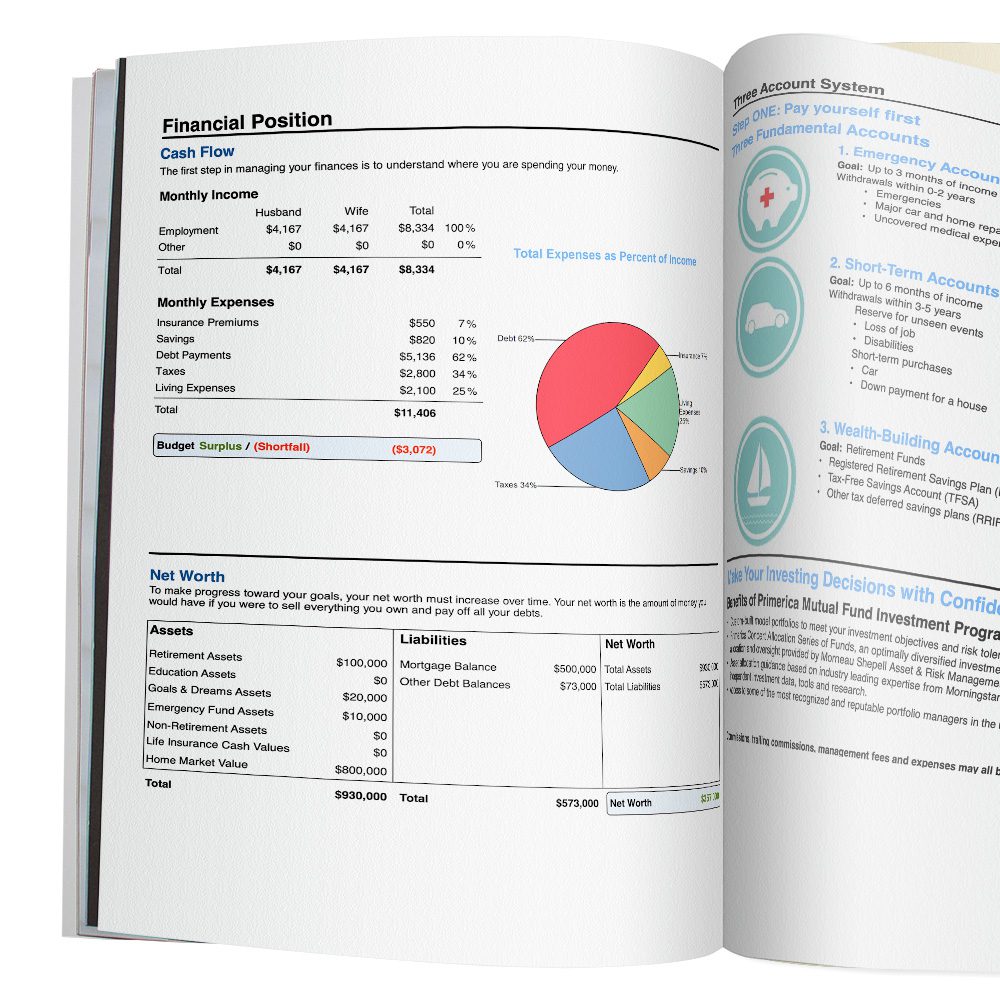
Have you ever wondered where all your money is going?
This page is called the "Financial Position" and gives you an easy to understand high-level picture exactly how you're spending your paycheque.
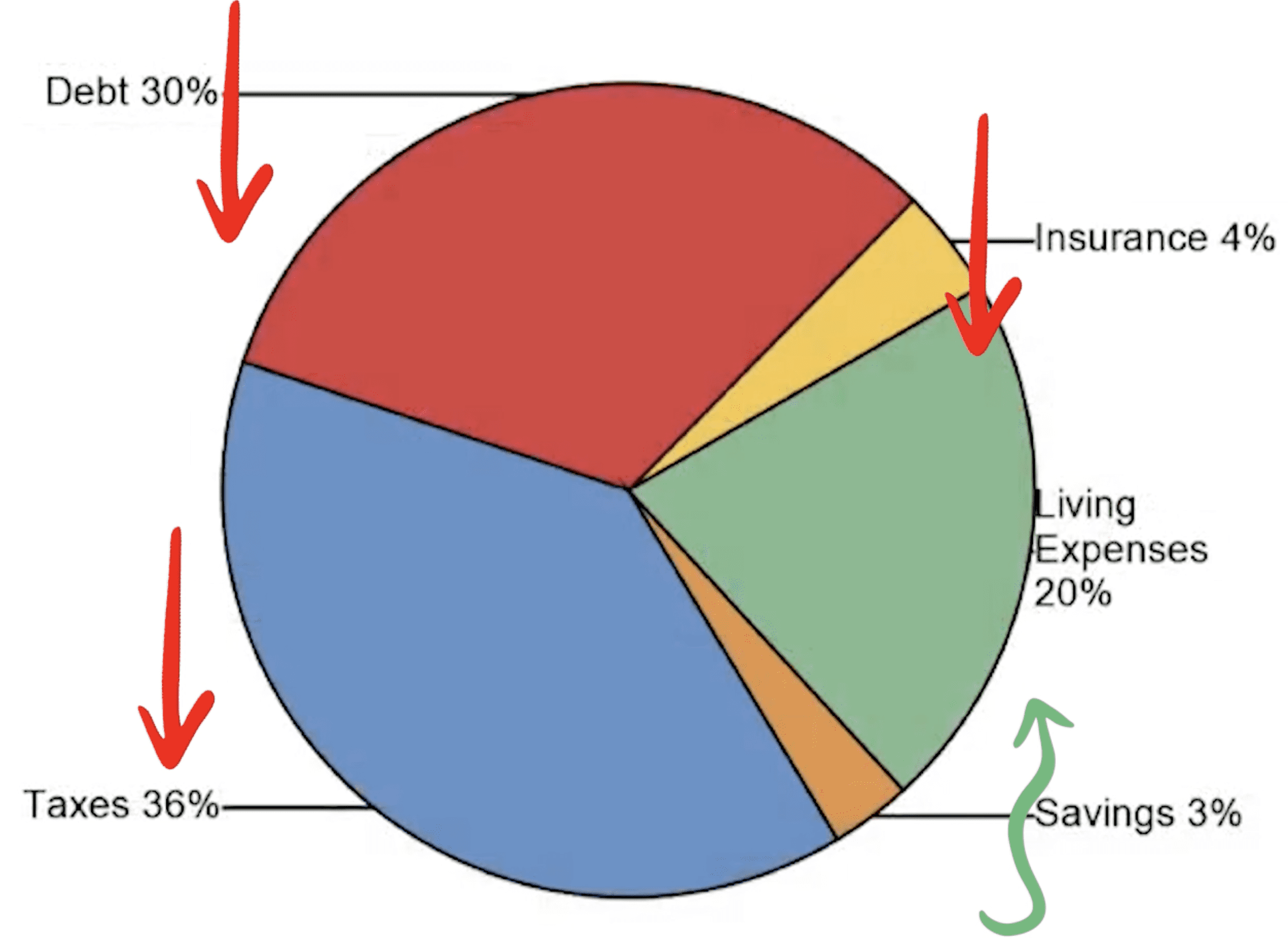
We'll show you ways to:
- reduce your taxes
- effectively pay off your debts
- cut your insurance costs
So you can increase your savings and increase your living expenses so you can enjoy a better quality of life.
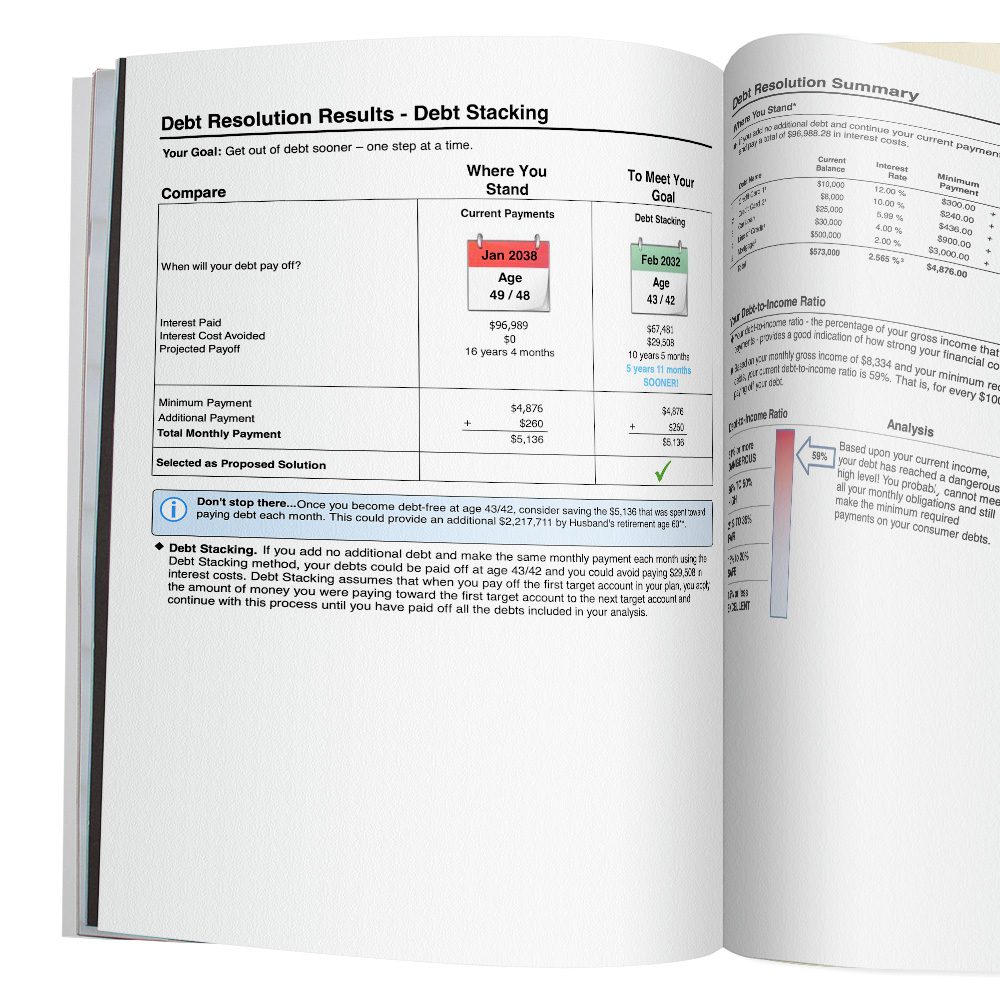
Effectively Eliminate Your Debts
If you're looking for a structured way to get those pesky debts off your back, this page of your Financial Blueprint can provide simple instructions to do so.
Most people think the best way to eliminate debts is by blindly throwing money at it. That's simply not true. There's more of a balancing act involved and some simple strategies which will be revealed in this section.
Some questions this section can answer:
- How can I pay off my mortgage in 10 years?
- Is there a way to pay off my debts faster without sacrificing my budget?
- What's the best way to pay off my mortgage, credit cards and loans
- Can I get a better interest rate on my mortgage?
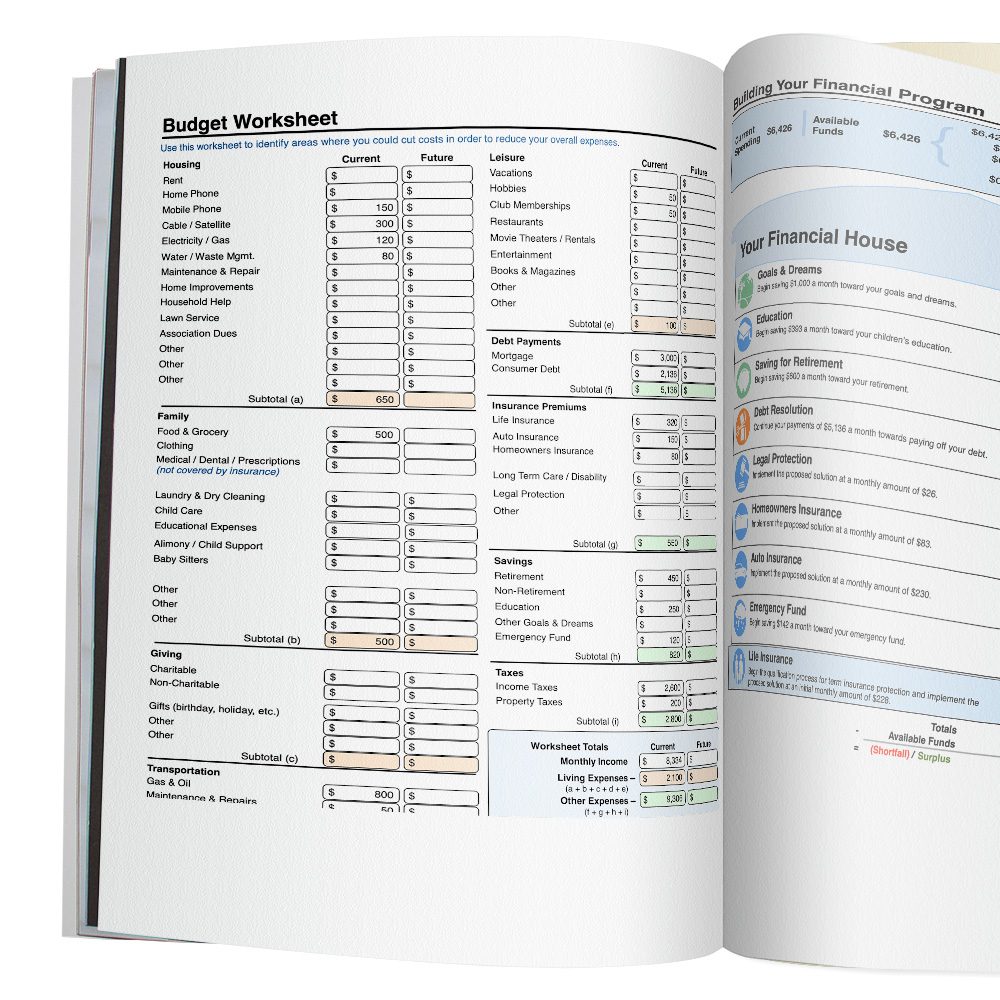
Map Out Your Budget and Cashflow
This page will guide you through creating a clear roadmap for your money.
Learn how to manage your monthly income effectively, allocate funds to necessities and fun stuff, and still have room for savings.
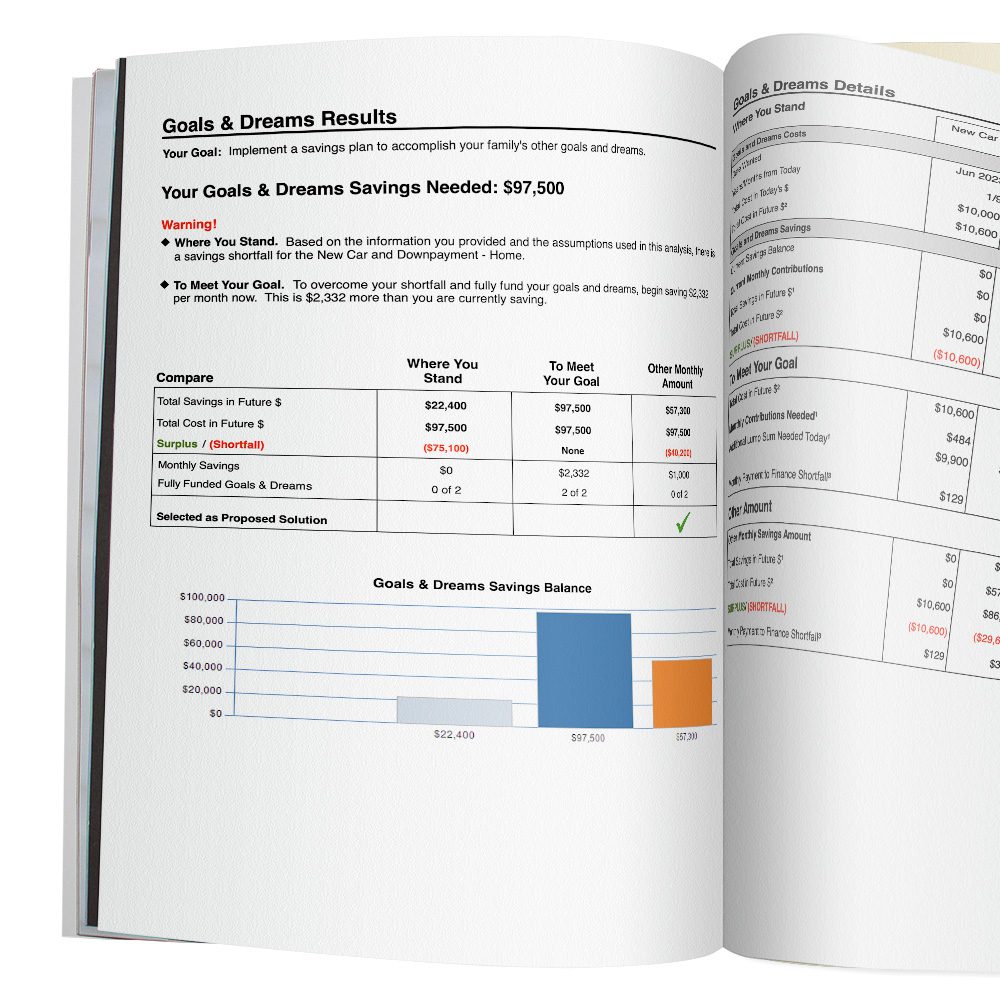
Hit Your Goals & Dreams
This is where we turn your aspirations into achievable milestones!
Whether it's buying a home, traveling the world, or starting a business, we'll help you define clear financial goals. Learn to prioritize, create a savings plan, and track your progress toward turning those dreams into reality.
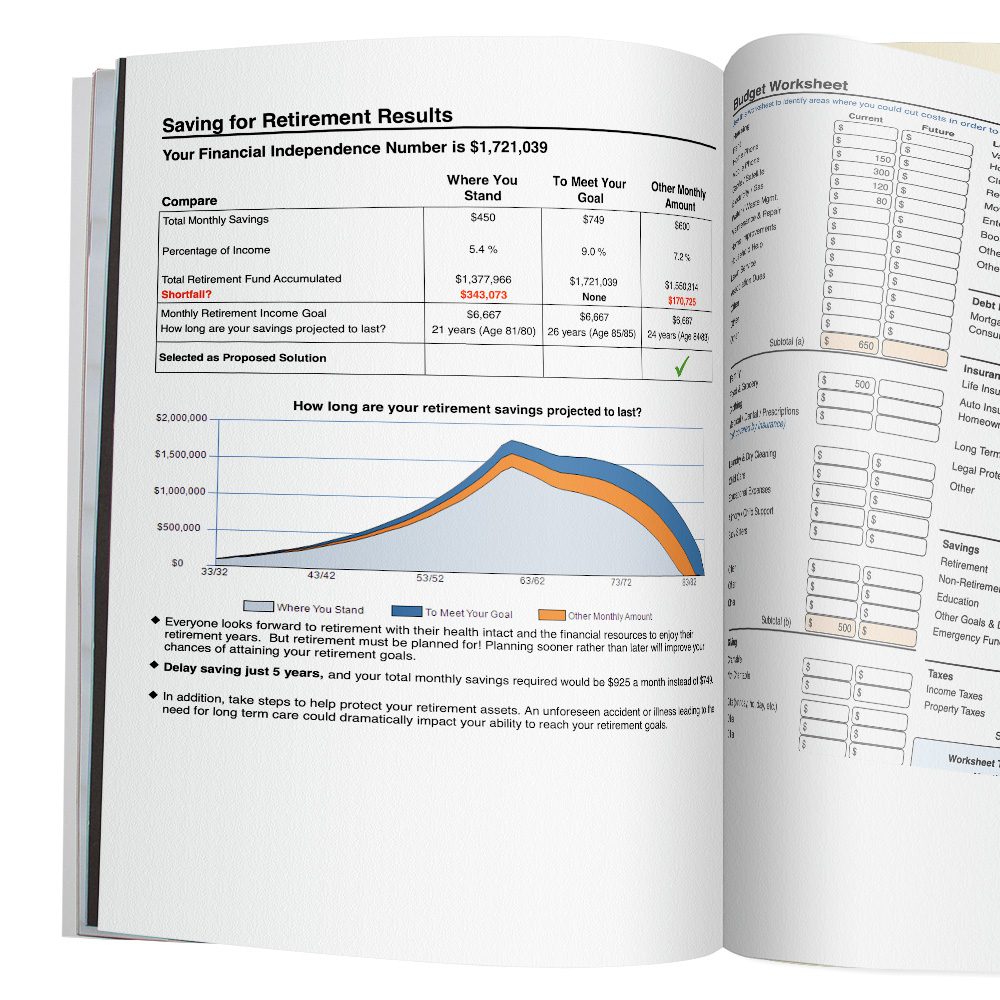
Clarify Your Vision for Retirement
We're all about making sure your future is as bright as can be.
Dive into the nitty-gritty of planning for retirement, figuring out savvy investment moves, and just generally getting your money game on point.
Whether you're new to this or already a pro, we've got tips to set up a solid retirement plan and build that wealth.
Get answers to questions like:
- Can I stop working at X years old?
- How can I better protect my assets from inflation, taxation and depreciation?
- How does my investment portfolio compare to others?
- If I retired tomorrow, how long will my money last me?
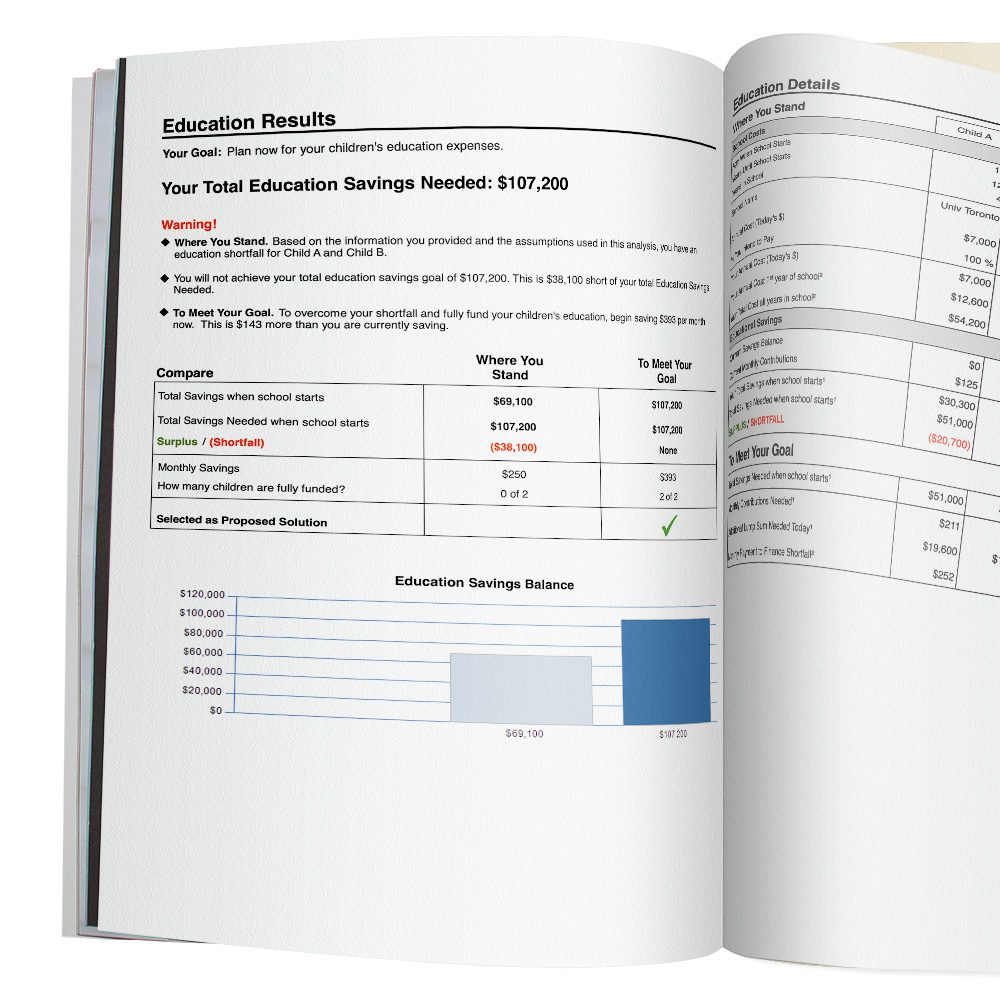
Fund Your Kids Education Without Breaking Your Budget
Here, we'll help you navigate the financial side of providing the best education for your little ones.
Learn how to make the most of government programs, budget for school expenses, explore funding options and ensuring your kids start their working careers without heavy student debts.
Get answers to questions like:
- How much do I need to fund my kids education?
- Is there a way to fund it without taking out a loan?
- How can I get the government to pay for my kids education without out-of-pocketing any expenses?
- How can I withdraw the money without triggering any taxes and unnecessary fees?
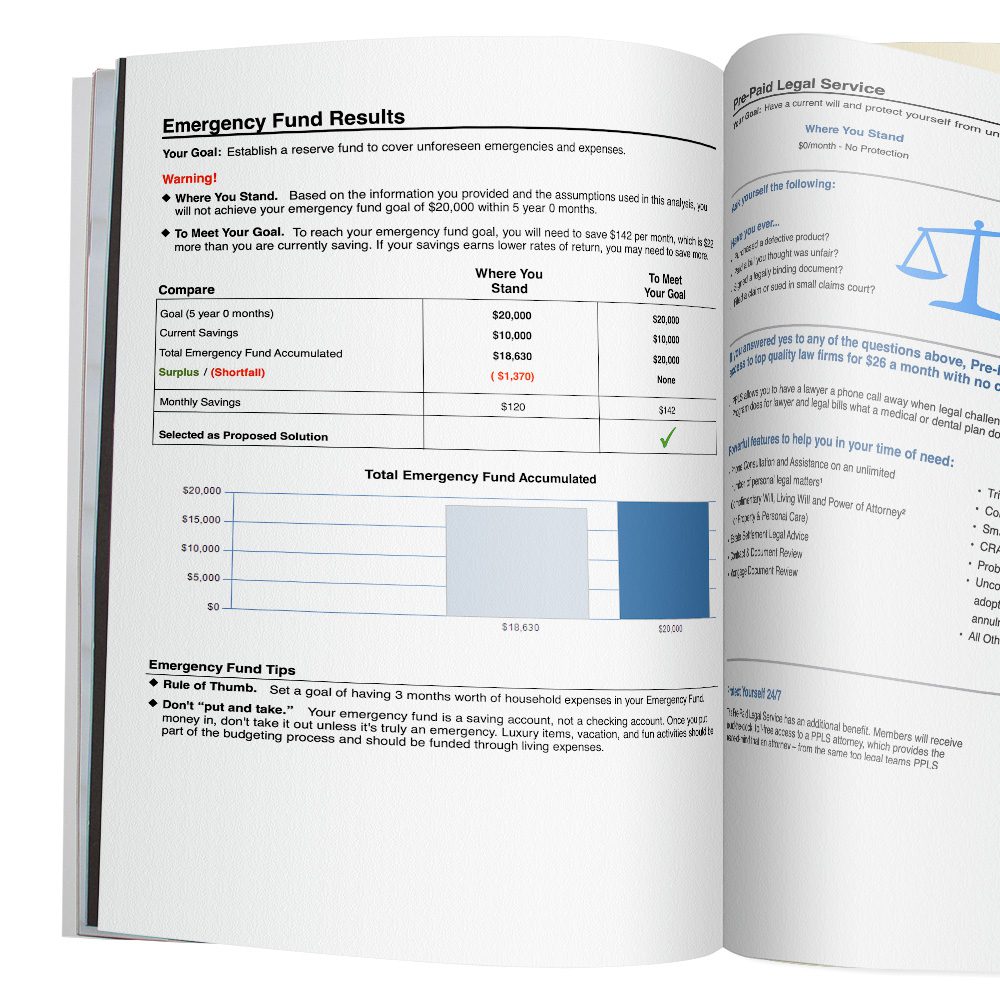
Set Aside an Emergency Fund
Here, we're all about helping you weather life's unexpected storms.
Learn the importance of having a financial cushion for those rainy days, and discover practical steps to build and maintain your emergency fund. From unexpected car repairs to medical bills, we've got your back.
This module empowers you to create a safety net, giving you peace of mind and financial resilience when life throws curveballs. Let's ensure you're ready to face the unexpected with confidence.
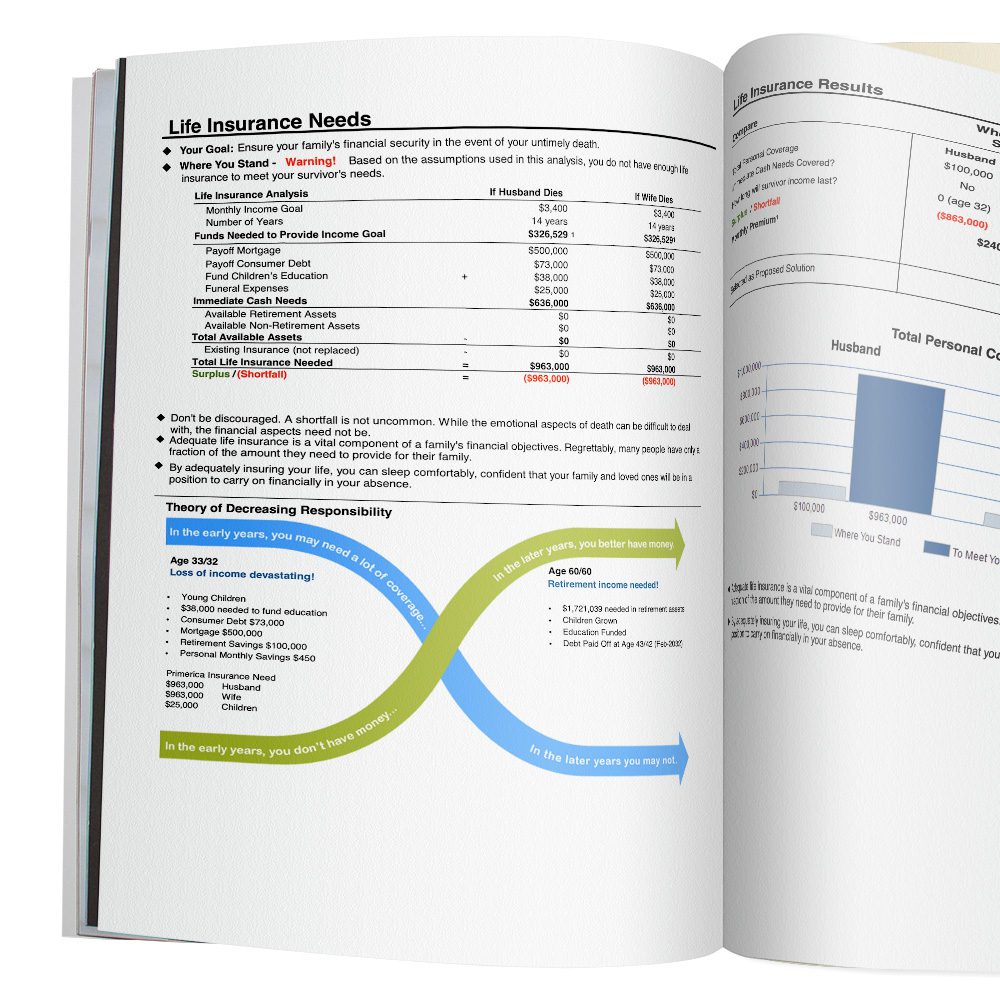
Protect What’s Most Important!
We're here to guide you through the crucial aspects of safeguarding your assets.
Learn about the importance of life insurance, mortgage insurance, and income protection.
From securing your family's future to ensuring your home is protected, and safeguarding your income, we've got the insights to help you make informed decisions.
Get answers to questions like:
- Is there a way to fully protect my spouse and kids with life insurance and grow my assets at the same time?
- Can I get a better rate on my home and auto insurance?
- How can I ensure my family is okay if I die too soon or live too long?
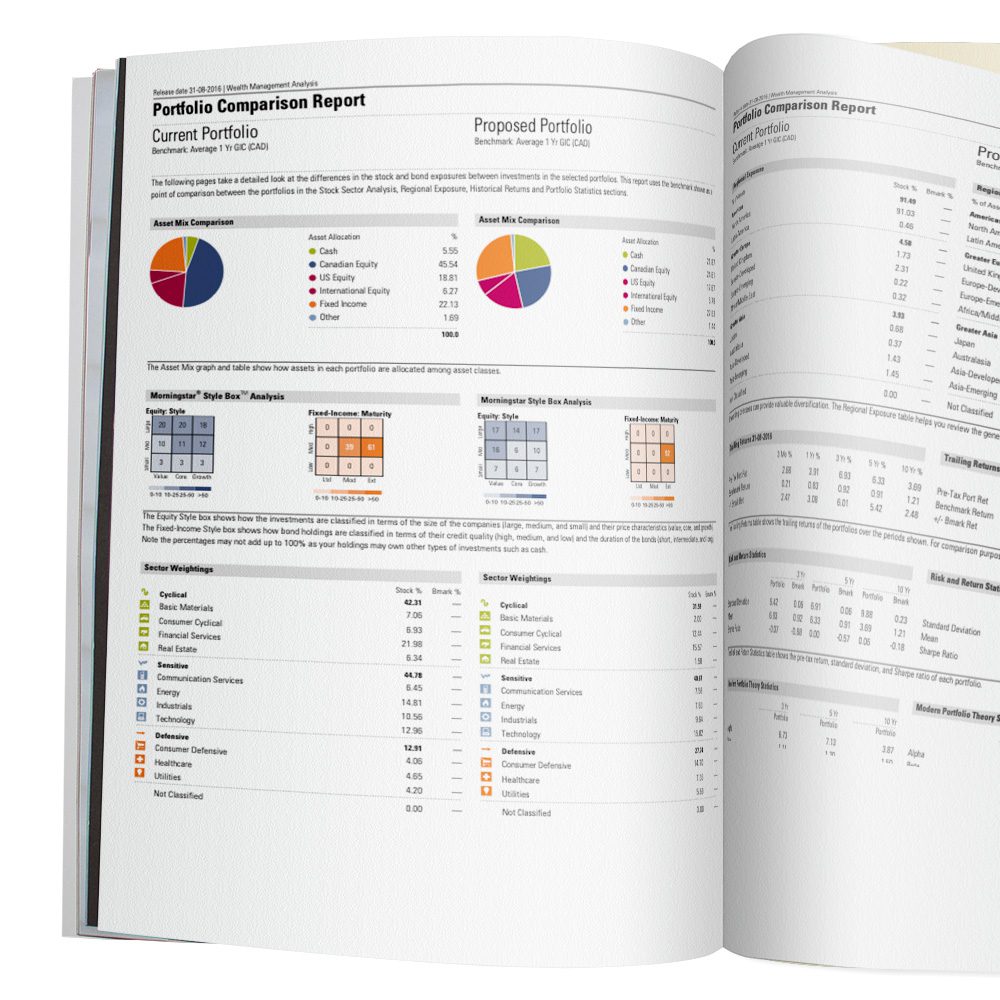
Is your money getting the growth it deserves?
If you're like most people, you might find it a bit fuzzy when it comes to understanding how your current investment portfolio stacks up against others.
This is crucial because you want your money to put in some serious work, maybe even more than you do in your job!
In this part of your Financial Blueprint, we ditch the confusing language and break down precisely how your portfolio has been performing in the past 5, 10, and 20 years.
It can answer questions like:
- How has your portfolio weathered different market conditions?
- What kind of returns can you realistically expect in the long run?
- Are there areas where your investments could use a boost or some strategic adjustments?
- What do you actually own?
- Is this portfolio the best vehicle to help me hit my financial goals?
You're Losing Money Every Minute you Wait!
It's easy to put off and there's probably never a convenient time, but you're losing money every minute you wait. The clock is literally ticking.
And remember, it's not what you know that gets you where you want to go. It's what you do with what you know.
You can have exercise equipment in your house and know what it does, but it's not going to change your life unless you use it.

Money is the same way. Knowing about it is not enough. You must do something.
Right now you're going to have the opportunity to take action to help make your choice easier.
Here are three possible paths you can choose from:
Path 1
Financial Blueprint
If you know where you want to go financially, but you're unsure how to get there, or if you're just getting started, you can take advantage of a complimentary and confidential cutting edge digital tool that will create a blueprint for your money.
It gives you simple to follow instructions that enable you to do all the things you learned about in this video. And it provides you a personal guide to help you make sure you do things right. By choosing financial blueprint, you will soon have a clear financial vision for you and your family, which means you can spend less time worrying about money and more time enjoying your life.
Path 2
Financial Home Improvement
You have just one or two things to improve your current financial house.
Path 3
Financial House Review
Perhaps you have a pretty strong financial house already, but you wouldn't mind getting a second opinion to make sure you are doing the best you possibly can.
Or to see if there's something available now that wasn't available before that might make your financial house even better. It never hurts to explore other options. In that case, Financial House Review is for you.
